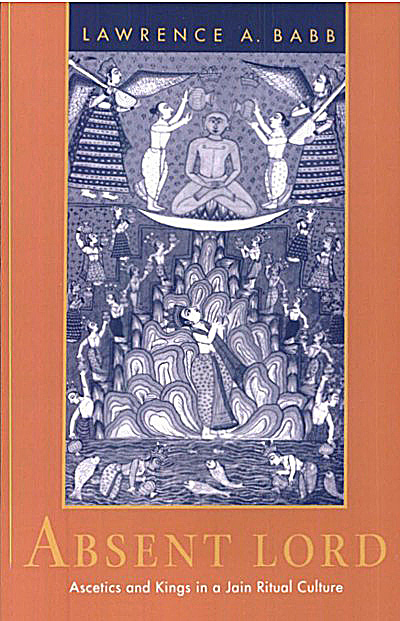Worship of the Dadagurus is extremely popular among Jaipur's Svetambar Jains. In fact, their worship is the principal religious activity of many Jains, and even members of the nontemple-going sects (the Sthanakvasis and Terapanthis) sometimes visit their shrines.[1] Although in some ways Jinkusalsuri is the most popular of the four, they in fact blend into a single, generic Dadagurudev.
The reason for the Dadagurus' popularity is simple: They are powerful beings to whom one can appeal directly for assistance in one's worldly affairs. Moreover, there seems to be little effort to disguise the goal of gaining assistance in worldly matters from the Dadagurus. Although some of my Jaipur friends claimed to worship the Dadagurus solely for such reasons as "peace of mind,"[2] most devotees spoke with unembarrassed candor about the material benefits of worshiping the Dadagurus. The general view of the Dadagurus is that they will give you wealth, health, success in business, or any of your heart's desires (manokamnas). In praise verses they are often compared to the kalptaru, the wish-fulfilling tree, or to the fabled cintamani, the jewel that grants all desires. I have been told by tough, capable businessmen that everything they have they owe to the Dadagurus.
The Dadagurus are able to render assistance to their worshipers because, unlike the Tirthankars, they are unliberated and can therefore engage in transactions with worshipers.[3] They are, one might say, vastly magnified versions of Chagansagar. They, too, are powerful and virtuous ascetics with whom ritual relationships can be maintained after death. When they died they ascended to the realm of the gods; after a sojourn there they will return to human bodies and achieve final release. Most Jains are not clear about exactly where the Dadagurus currently are or what their status is, and the average devotee will simply say they are in "heaven." But the important thing is that although they are bound for liberation, they are not liberated yet; in the meantime they can and do dispense divine aid to their worshipers.
It is, however, rare for Digambars to visit their shrines. I was told that "even Muslims" worship the Dadagurus. This seems improbable to me, but expresses the Jains' own sense of ecumenism regarding the Dadagurus.
I think this may have reflected a desire to give the foreign investigator a "correct" version of Jainism, which in the minds of many Jains would definitely have nothing to do with such material benefits as wealth. It also may have reflected a diffidence about beliefs known to be regarded as unmodern and "superstitious" in the West. Peace of mind (in Hindi, man ki santi) seems to be a generic respectable and reasonable religious goal in South Asia.
 Prof. Dr. Lawrence A. Babb
Prof. Dr. Lawrence A. Babb
